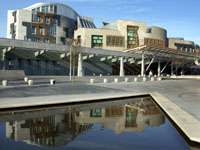David Cameron’s years in public relations weren’t wasted.
Whatever one thinks of his government’s policies, its mastery of linguistic tactics has been spot on.
Repetition has planted key words and slogans firmly in the public discourse. A party not best known for its unity, not even capable of governing alone, has, with one voice, cleverly defined the political debate – and the Opposition.
First came “the mess we inherited,” the unrelenting mantra that cast Labour as the party of profligacy. Out went any notion that millionaire bankers had brought the global financial system to its knees. Recession was caused by debt; debt was caused by the previous government’s giddy spending frenzy. What could the Conservatives do but “clear up Labour’s mess”?
Embarrassed by the chaos of the Brown years, stunned by the sudden ballooning of the debt after the 2008 crash, Labour was tongue-tied. So the public has accepted that the money was indeed wasted on fripperies as the Tories relentlessly implied.
Where was the counter-argument about improved public services? Yes, spending did increase under Labour and it’s true some of the money could have been better spent. As the Institute for Fiscal Studies points out, we didn’t always get bang for our buck.
But we did get a National Health Service transformed from the old Tory days of 18-month waiting lists for appointments in dingy, crumbling hospitals. Schools were rebuilt, their pathetic budgets increased. Teachers and nurses were recruited and, at last, properly paid.
Not that Ed Miliband and his friends had the wit or courage to say so. Nor have they countered the Conservatives’ re-labelling of one of the most important issues of our time. Income support, housing benefit, disability allowances – whatever the state benefit, whatever the level of need, it’s lumped together as “Welfare” these days.
And if you had any doubt about the pejorative nature of that term, imported from the US (land of the “welfare queens”, “welfare moms”, even “welfies”) just listen to Iain Duncan Smith. When the Work and Pensions Secretary scoffed at “Labour, the Welfare Party” on Radio 4’s Today Programme, he didn’t mean it as a compliment. (True to the Tory-PR style book, he’s used the phrase, or some variation of it repeatedly in recent weeks).
The party of welfare, of the unions, and of reckless spending on frivolous things. The words have been spat across the House of Commons or onto the airwaves so effectively that a paralysed Labour Party seems almost to have accepted the Tory labels. So have the media.
And now there’s another bit of slick PR sloganizing we’re likely to hear repeated endlessly in the run up to the next election. “From rescue to recovery” is how the Chancellor, George Osborne described the economy in his recent Spending Review. It’s the Treasury phrase du jour. Out it came again last week when the IMF said the UK could see economic growth this year of a pathetic 0.9 per cent.
Never mind that the “rescue” has seen falling wages and a growth in poorly paid, part-time jobs. Never mind the Local Government Association’s dire warning that budget cuts mean some basic public services could disappear altogether. Let’s not worry either about the doubling in the numbers of people turning to food banks in the past three months.
Of course, all governments try to tell the story their way. Labour were once Westminster’s masters of spin. Not any more. David Cameron is a much more accomplished communicator than people tend to think of a man who often has trouble getting his own party to listen.
His skill with language has changed the tone of debate and as a result, the substance. Labour meanwhile, are all too often lost for words.

